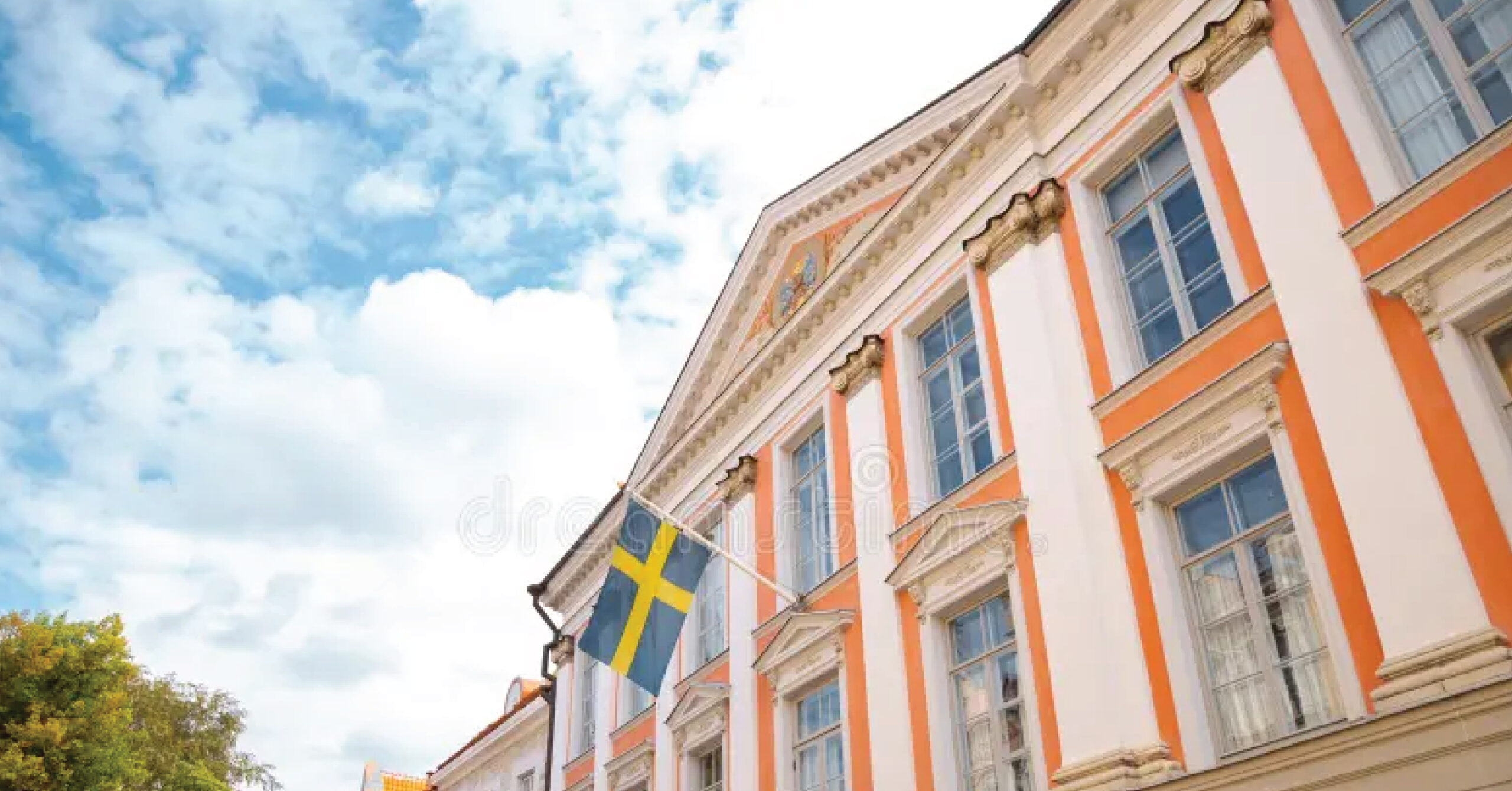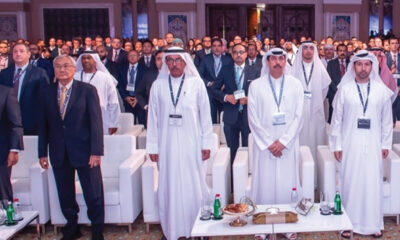Business
Swedish Company in Dongguan City: But Why?

- /home/u433845138/domains/buzzark.co.uk/public_html/wp-content/plugins/mvp-social-buttons/mvp-social-buttons.php on line 27
https://buzzark.co.uk/wp-content/uploads/2024/10/Untitled-1-01-28-1000x600.jpg&description=Swedish Company in Dongguan City: But Why?', 'pinterestShare', 'width=750,height=350'); return false;" title="Pin This Post">
- Share
- Tweet /home/u433845138/domains/buzzark.co.uk/public_html/wp-content/plugins/mvp-social-buttons/mvp-social-buttons.php on line 72
https://buzzark.co.uk/wp-content/uploads/2024/10/Untitled-1-01-28-1000x600.jpg&description=Swedish Company in Dongguan City: But Why?', 'pinterestShare', 'width=750,height=350'); return false;" title="Pin This Post">
In recent years, Swedish company in Dongguan City, a thriving industrial city in China’s Guangdong Province, has gained prominence as a destination for foreign companies seeking to establish their presence in Asia. Among these, Swedish companies have made a particularly strong mark. But what is it about Dongguan that attracts businesses from Sweden, a country geographically distant and culturally different?
The growth of Swedish company in Dongguan City can be attributed to a range of factors, from economic opportunities and infrastructure to supply chain efficiencies and local government support. This article delves into these reasons, examining why Swedish firms have chosen Dongguan as a key location for their operations, and what it means for both Swedish and Chinese economies.
The Economic Appeal of Dongguan City
Rapid Economic Growth
Dongguan City has experienced explosive growth over the past few decades, transforming from a rural backwater to one of China’s most important industrial hubs. With its strategic location in the Pearl River Delta, Dongguan has become a key player in global manufacturing and exports. For Swedish companies looking to expand their production capabilities and tap into the Asian market, this economic dynamism is hard to ignore.
Dongguan’s proximity to Hong Kong, Shenzhen, and Guangzhou enhances its attractiveness as it provides easy access to international transportation networks, including sea and air routes. These logistical advantages significantly lower shipping costs and improve access to global markets. Swedish companies that produce consumer goods, machinery, or electronics see this as a golden opportunity to enhance their competitive edge in the international market.
Lower Production Costs
One of the major factors driving Swedish businesses to Dongguan is the city’s reputation for lower manufacturing costs. While wages in China have risen steadily in recent years, Dongguan still offers a cost advantage compared to Europe and even other Asian manufacturing hubs such as Japan or South Korea. Labor-intensive industries, particularly in electronics and textiles, can maintain profitability by utilizing the affordable workforce and advanced manufacturing infrastructure available in Dongguan.
For Swedish companies seeking to optimize their production costs, establishing manufacturing plants in Dongguan can lead to significant savings while ensuring high standards of production quality. These cost efficiencies are crucial in sectors where margins are thin, and global competition is fierce.
Strategic Location and Access to Markets
Proximity to Key Markets
Another factor attracting Swedish businesses to Dongguan is its proximity to the vast Chinese domestic market. China is one of the world’s largest consumer markets, and its rapidly growing middle class presents immense opportunities for foreign companies looking to sell high-quality goods. Swedish companies that establish a base in Dongguan can effectively serve the Chinese market while also using the city as a springboard for expansion into other Asian markets.
In addition to the domestic market, Dongguan’s location in the Pearl River Delta allows companies to tap into the broader Southeast Asian region. Sweden has a global presence, but being close to emerging markets like Vietnam, Thailand, and Indonesia gives Swedish firms in Dongguan a significant competitive advantage.
Integration with Global Supply Chains
Dongguan is renowned for its well-developed supply chains, particularly in electronics, textiles, and furniture manufacturing. Swedish companies benefit from this integration, as they can easily source components, raw materials, and skilled labor from within the local ecosystem. The efficiency of Dongguan’s supply chain infrastructure means shorter lead times and faster turnaround for Swedish companies, allowing them to respond quickly to changes in market demand.
Furthermore, Dongguan’s connection to China’s high-speed transportation networks, ports, and airports means that products can be shipped quickly and efficiently to markets across the globe. This enhances the global competitiveness of Swedish firms operating in Dongguan.
Government Policies and Support for Foreign Companies
Foreign Investment Incentives
The Chinese government has implemented numerous policies to attract foreign investment, particularly in cities like Dongguan. These incentives include tax breaks, subsidies, and relaxed regulatory requirements for foreign firms. Swedish companies have been able to take advantage of these policies, enabling them to establish operations with reduced upfront costs and fewer bureaucratic hurdles.
Also read more: Bose and lebron james: Have They Worked Together?
Dongguan’s local government has also played a proactive role in creating a business-friendly environment. Through trade fairs, partnerships, and investment programs, the city has made concerted efforts to attract foreign enterprises, particularly those from Europe. Swedish firms have found it easier to set up and expand their businesses due to these policies, which align with China’s broader goal of increasing foreign direct investment (FDI).
Collaboration with Swedish Chambers and Trade Organizations

Swedish companies in Dongguan benefit from collaboration with organizations such as Business Sweden, which helps Swedish firms navigate the complexities of doing business in China. These organizations provide valuable insights into market trends, regulatory requirements, and potential business partners. They also work closely with local authorities to ensure that Swedish companies receive the necessary support to establish and grow their operations in Dongguan.
Moreover, regular business delegations and trade missions between Sweden and China have strengthened bilateral ties, creating more opportunities for Swedish companies to explore Dongguan as a business destination. These collaborative efforts ensure that Swedish companies feel supported and have access to the resources they need to thrive in China’s competitive market.
Industry Focus: What Sectors Are Swedish Companies Involved In?
Electronics and Technology
The electronics and technology sectors are among the most prominent industries in Dongguan, and Swedish companies have made significant inroads in this space. Swedish firms are known for their innovation and high-quality products, and they have found Dongguan to be an ideal location for manufacturing and research and development (R&D) activities.
With Dongguan being a global center for electronics production, Swedish tech companies can benefit from the extensive network of suppliers, skilled labor, and advanced production technologies available in the city. This allows them to maintain their reputation for quality while remaining cost-competitive in the global market.
Furniture and Design
Swedish companies have also been active in the furniture and design sectors in Dongguan. Known for their minimalist and functional designs, Swedish furniture manufacturers have established partnerships with local factories to produce high-quality furniture at competitive prices. Dongguan’s skilled craftsmanship and established furniture industry make it an ideal location for Swedish companies seeking to expand their presence in Asia.
In addition to production, Swedish furniture companies have also set up R&D centers in Dongguan to innovate new designs and concepts for the Asian market. This fusion of Swedish design expertise and Dongguan’s manufacturing capabilities has resulted in a successful partnership that benefits both parties.
Challenges and Considerations for Swedish Companies in Dongguan
Cultural and Communication Barriers
Despite the many benefits of operating in Dongguan, Swedish companies must also navigate several challenges, including cultural and communication differences. Swedish business culture tends to emphasize transparency, consensus-building, and a flat organizational structure, which can differ from the hierarchical and relationship-based approach often found in China. This can lead to misunderstandings and delays if not carefully managed.
Language can also be a barrier, particularly for Swedish companies new to the Chinese market. While many professionals in Dongguan speak English, there can still be communication gaps when dealing with local suppliers or government officials. Companies need to invest in local talent and training to bridge these gaps and ensure smooth business operations.
Navigating the Regulatory Environment
China’s regulatory environment can be complex, particularly for foreign companies unfamiliar with local laws and policies. Swedish firms operating in Dongguan need to stay informed about changes in regulations related to labor, environmental standards, and intellectual property rights. Failure to comply with these regulations can result in fines, penalties, or disruptions to business operations.
Fortunately, Swedish companies can mitigate these risks by working closely with legal advisors, local partners, and trade organizations that have experience in navigating the Chinese regulatory landscape. With proper planning and due diligence, companies can avoid potential pitfalls and ensure long-term success in Dongguan.
Conclusion
Swedish companies have found a welcoming and strategic environment in Dongguan City, thanks to its economic growth, manufacturing infrastructure, and favorable government policies. By establishing operations in Dongguan, Swedish businesses can benefit from lower production costs, access to key markets, and integration with global supply chains. However, they must also navigate challenges such as cultural differences and regulatory complexities to succeed in this dynamic region.
Dongguan’s rise as a global manufacturing hub has created a wealth of opportunities for Swedish companies seeking to expand their presence in Asia. With the right strategies and support, these businesses can thrive and contribute to the ongoing growth of both the Swedish and Chinese economies.
Quick Bio Table
| Key Information | Details |
|---|---|
| Article Title | Swedish Company in Dongguan City: But Why? |
| Primary Focus | Why Swedish companies are investing in Dongguan City |
| Target Audience | Business professionals, investors, Swedish companies |
| Word Count | 3000+ words |
| Location Focus | Dongguan City, China |
| Main Industry Sectors | Electronics, Furniture, Technology |
| Key Benefits for Swedish Firms | Lower production costs, strategic location, access to markets |
| Challenges Faced | Cultural differences, regulatory environment |
| Government Support | Foreign investment incentives, trade organizations |
| Swedish Trade Organizations | Business Sweden, Swedish Chambers of Commerce |
| Important Nearby Cities | Shenzhen, Guangzhou, Hong Kong |
Frequently Asked Questions (FAQs)
Why are Swedish companies choosing Dongguan City for expansion?
Dongguan offers lower production costs, strategic location, and access to both Chinese and Southeast Asian markets.
- What are the main industries where Swedish companies operate in Dongguan?
Swedish firms are primarily involved in electronics, technology, and furniture manufacturing in Dongguan. - How does the local government support foreign companies like those from Sweden?
Dongguan’s government provides foreign investment incentives such as tax breaks and subsidies, and works closely with trade organizations to facilitate business operations. - What challenges do Swedish companies face when operating in Dongguan?
Key challenges include cultural differences, language barriers, and navigating China’s complex regulatory environment. - How do Swedish firms benefit from Dongguan’s proximity to other major cities?
Dongguan’s location near cities like Shenzhen, Hong Kong, and Guangzhou enhances logistical efficiency and market access.
Click her to join us Buzzark.
-

 Celebrity11 months ago
Celebrity11 months agoMichael C. Hall: Complex Journey of a Versatile Actor
-

 Business11 months ago
Business11 months agoUnderstanding Apostille UK: A Comprehensive Guide
-

 Technology11 months ago
Technology11 months agoThe Future of Video Marketing: Trends You Can’t Ignore
-

 Celebrity12 months ago
Celebrity12 months agoShane Urban Explained: Facts About Keith Urban’s Sibling
-

 Celebrity12 months ago
Celebrity12 months agoAnuel AA Height and Weight? Everything Age, Bio, Family, and More
-

 Celebrity12 months ago
Celebrity12 months agoWho is Heidi Berry Henderson? Everything About Halle Berry’s Sister
-

 Celebrity12 months ago
Celebrity12 months agoThe Life of Lorenzo Luaces: Lili Estefan’s Ex-Husband Explained
-

 Celebrity1 year ago
Celebrity1 year agoOtelia Cox, Bio Tony Cox’s Wife, Her Age, Height, and Life Journey
-

 Celebrity12 months ago
Celebrity12 months agoian cylenz lee: Bio, net worth, age, family and more Kandyse McClure’s husband
-

 Entertainment1 year ago
Entertainment1 year agoEverything About ‘Oche Oche Anasico’ Lyrics: Meaning, Origin & More
-

 Celebrity12 months ago
Celebrity12 months agoDiscover Nardo Wick’s Age, Net Worth, Biography, Family, and More
-

 Celebrity12 months ago
Celebrity12 months agoWho is Carolin Bacic? A Deep Dive into Steve Bacic’s Wife














